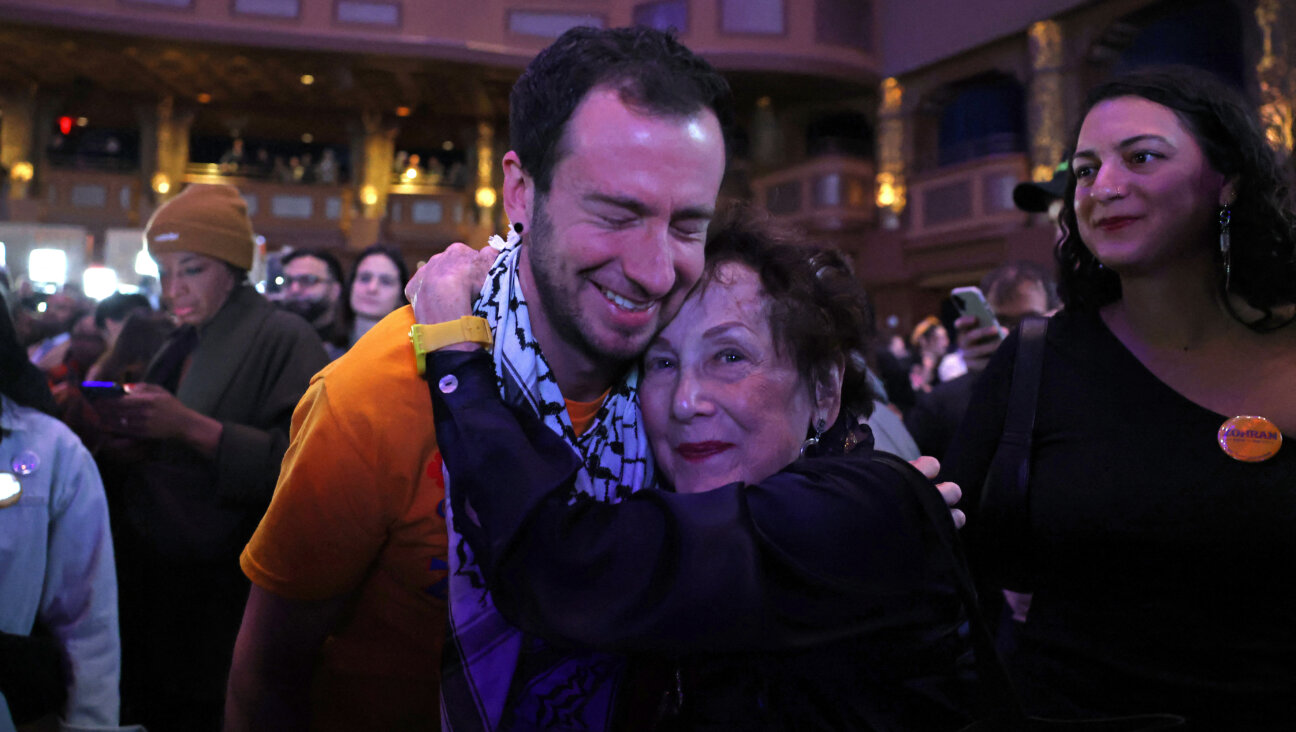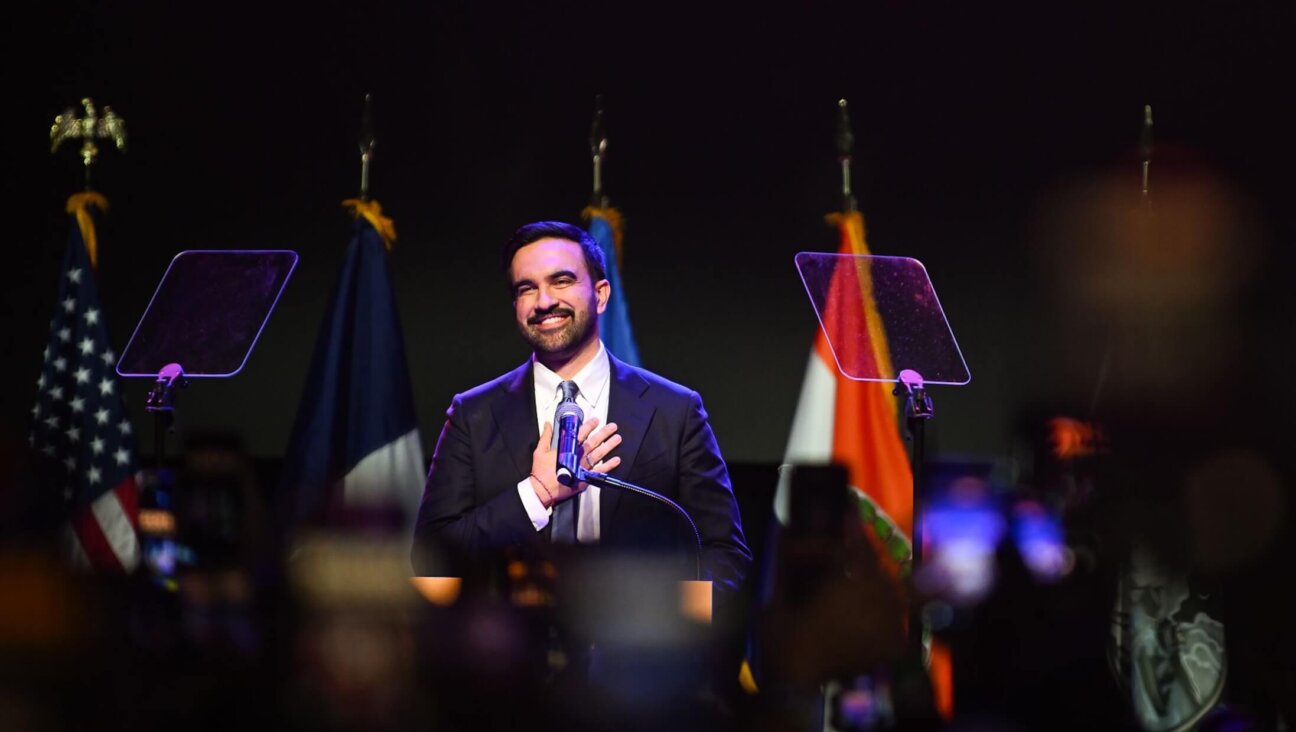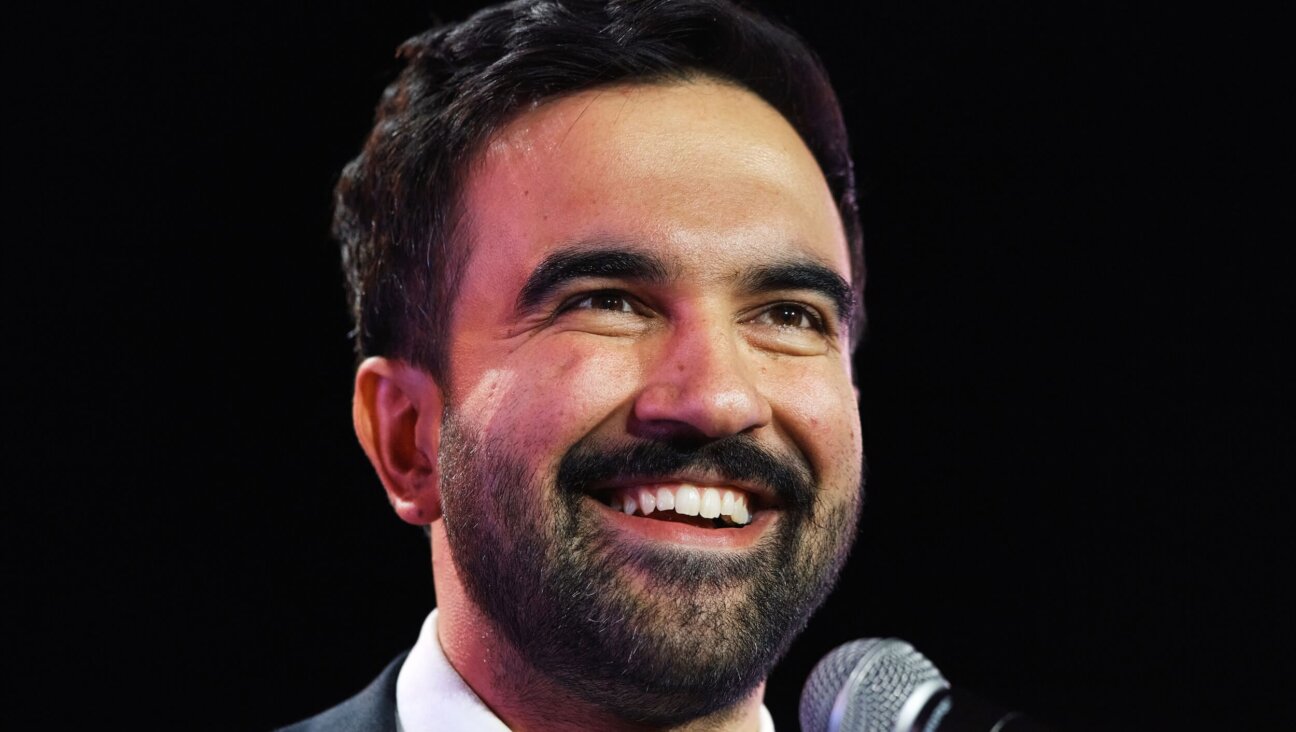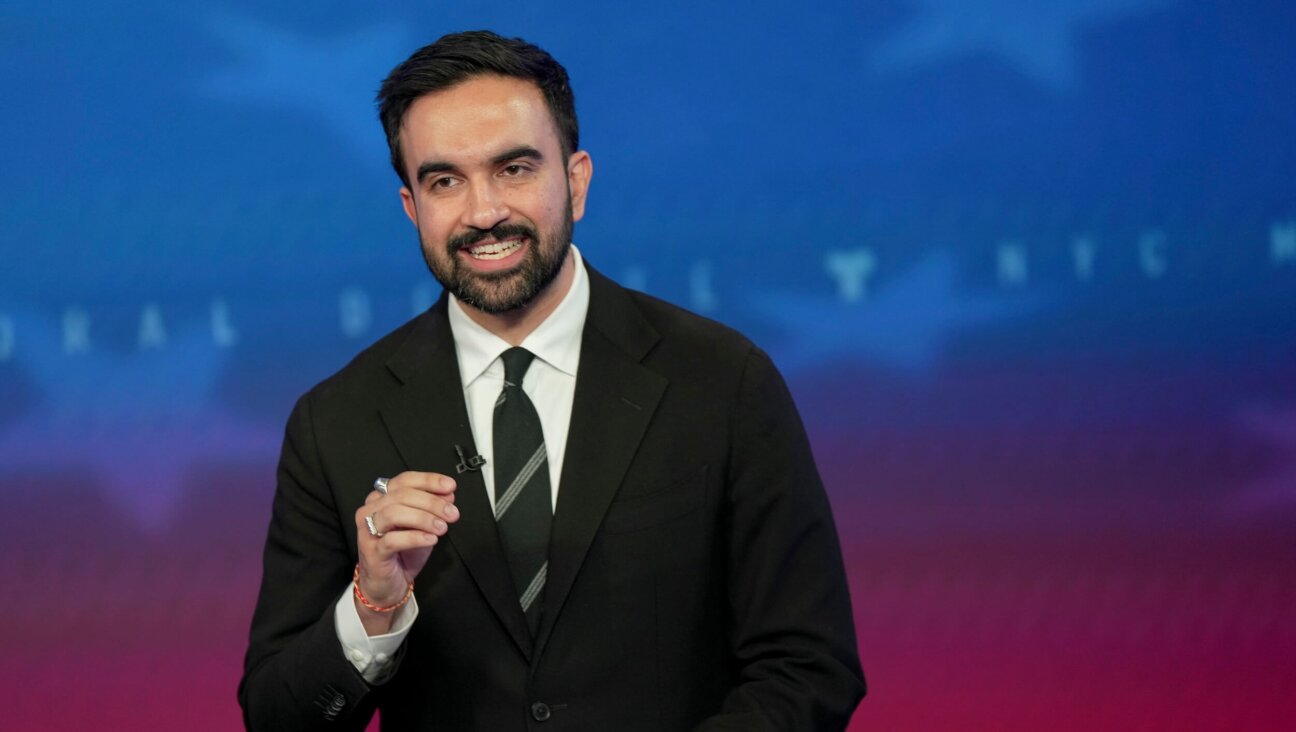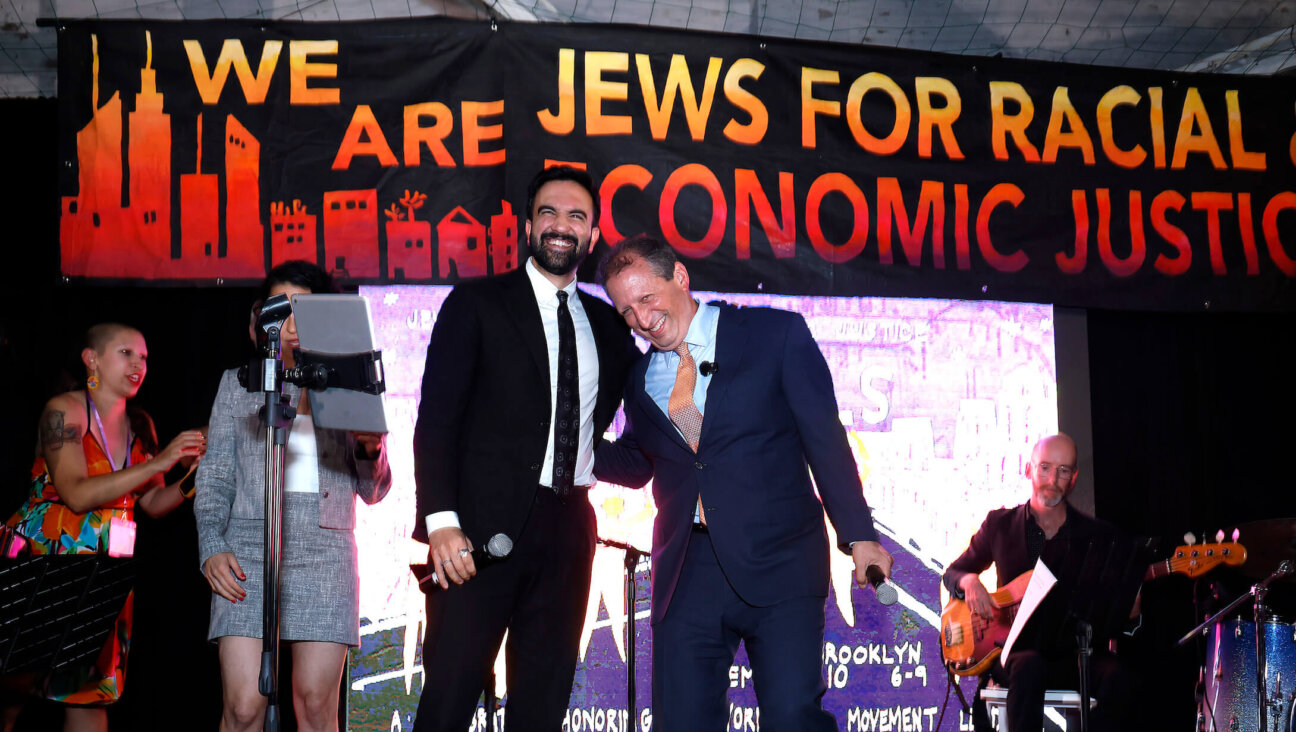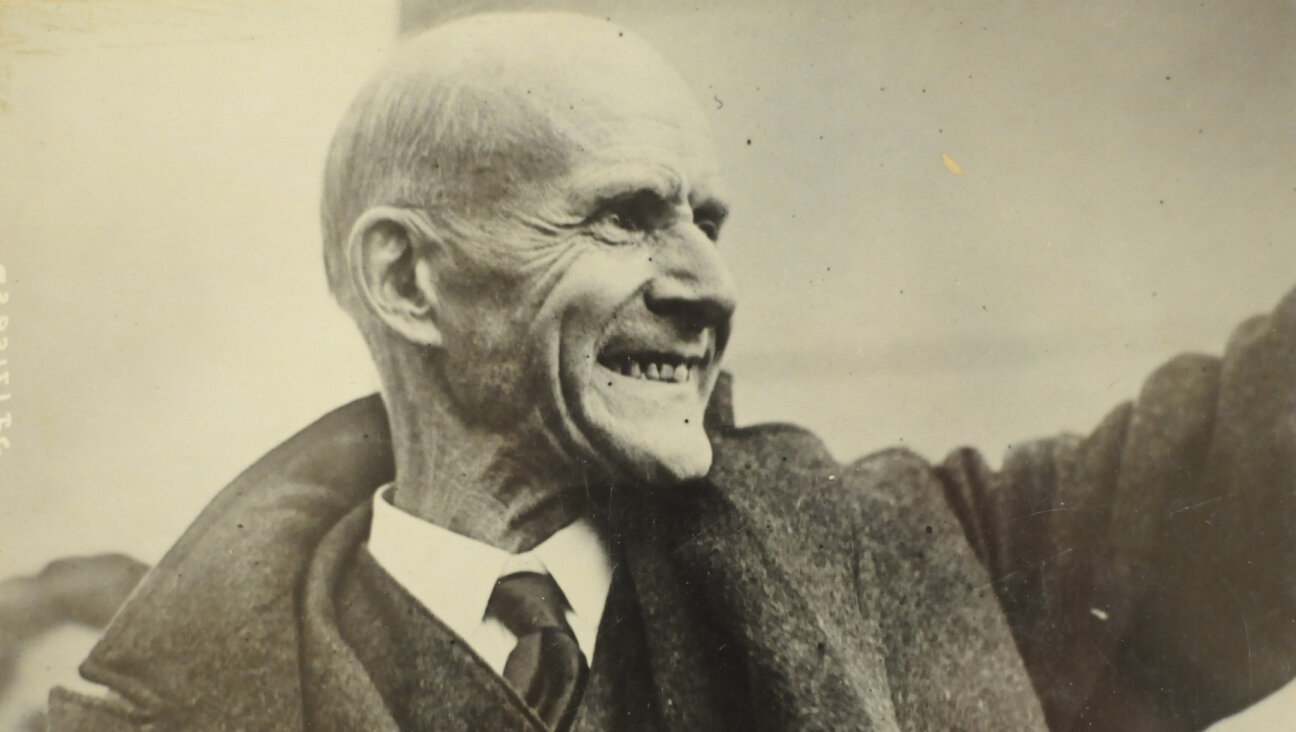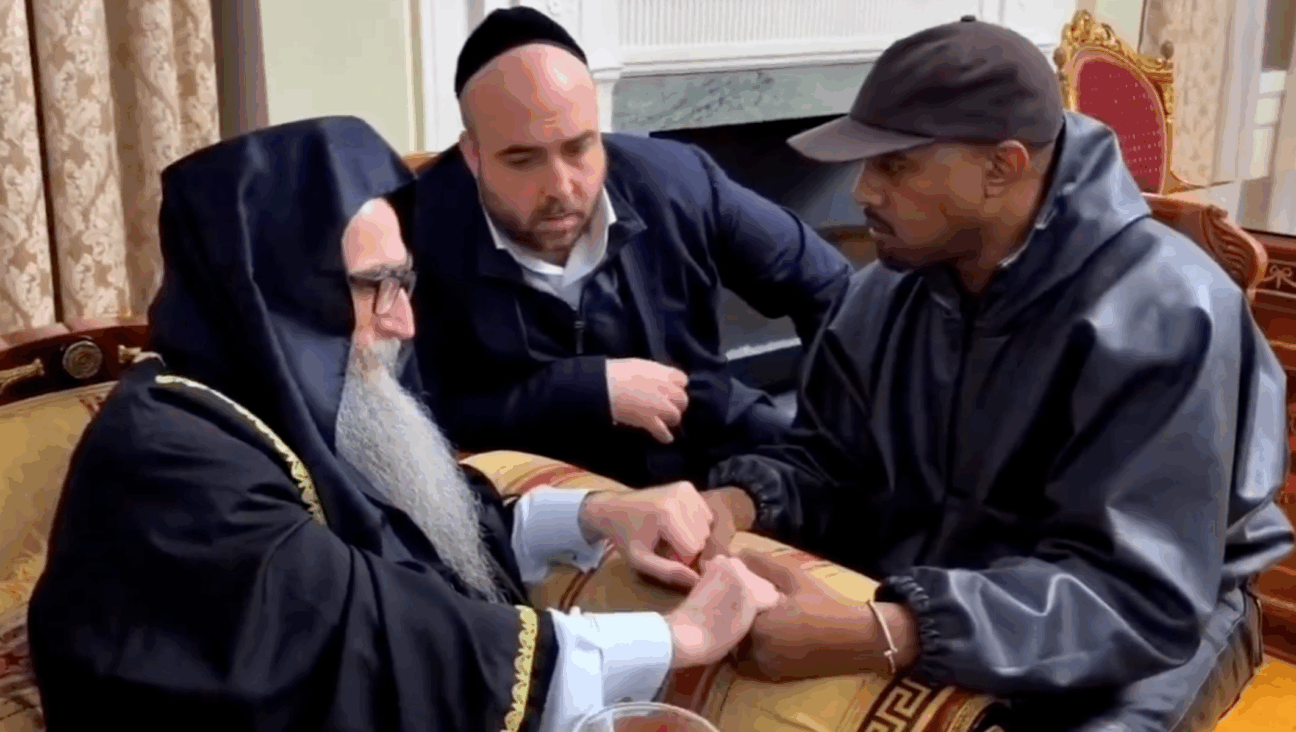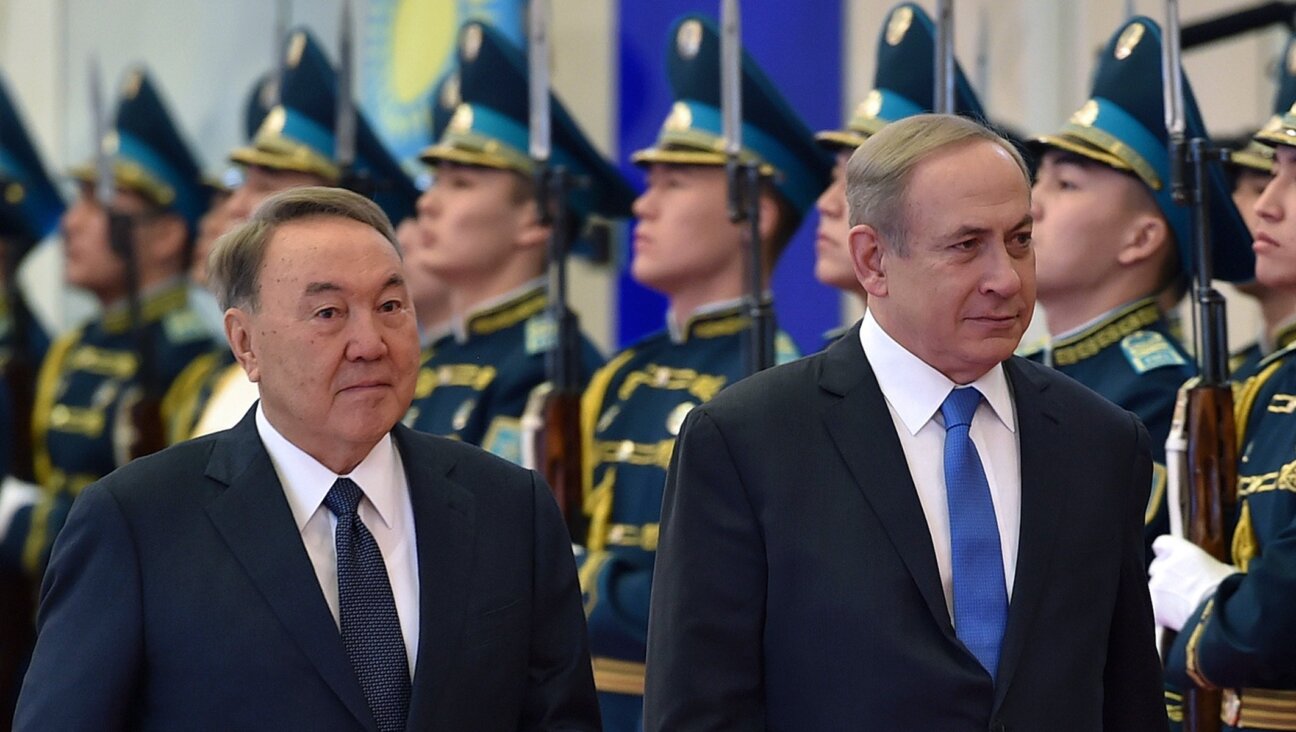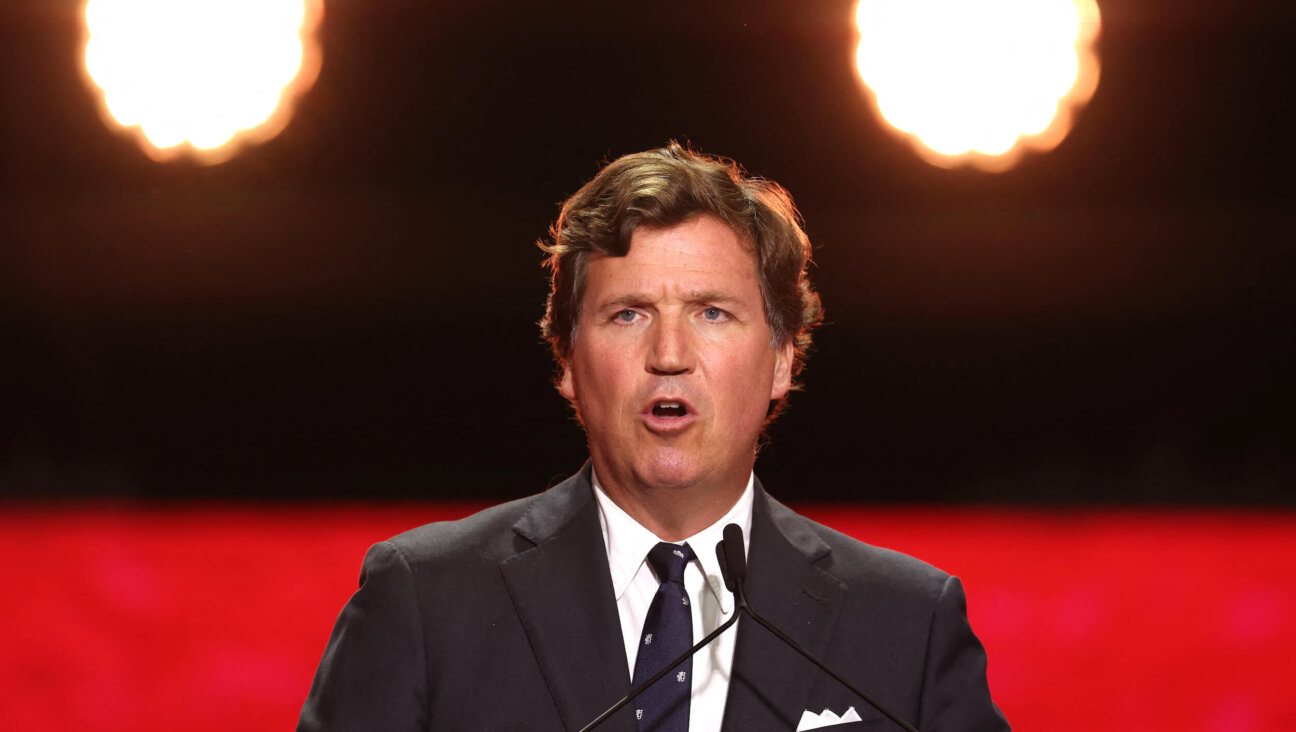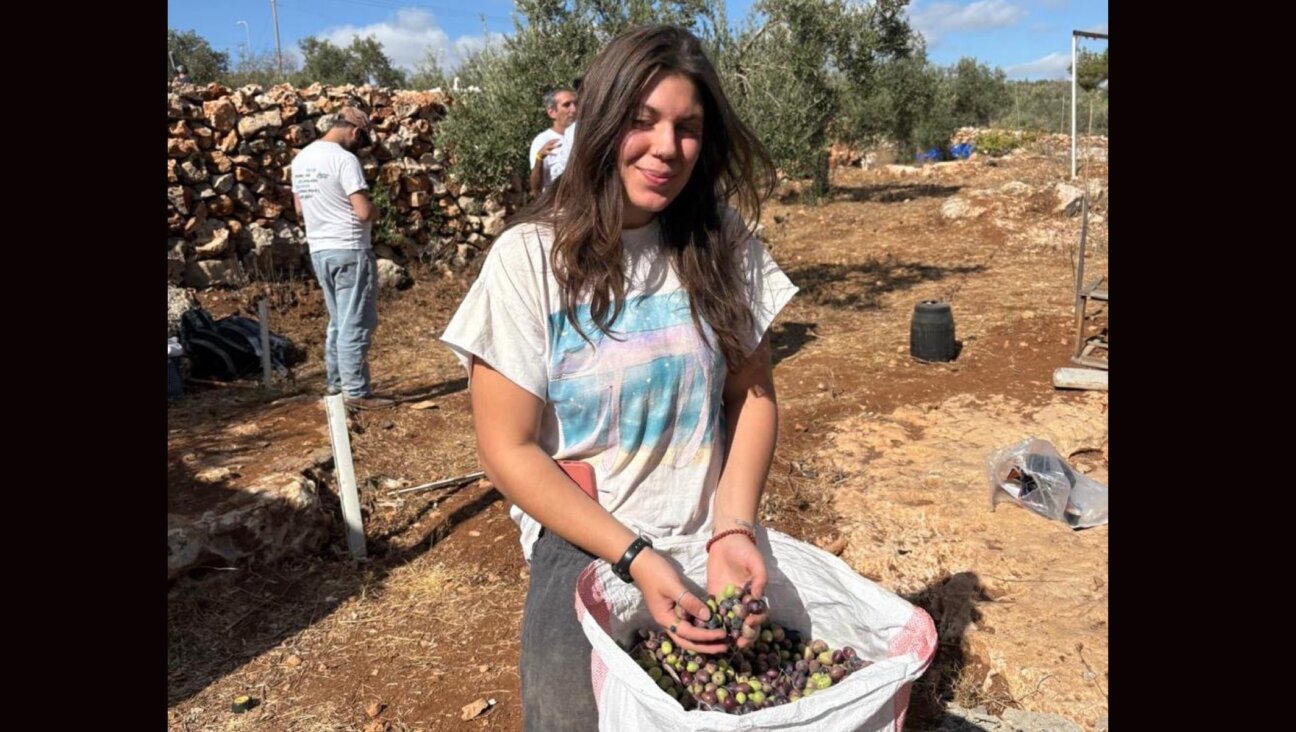Why a Harvard rabbi walked off the stage at commencement
Some have accused featured speaker Maria Ressa, a champion of free speech, of trafficking in antisemitism
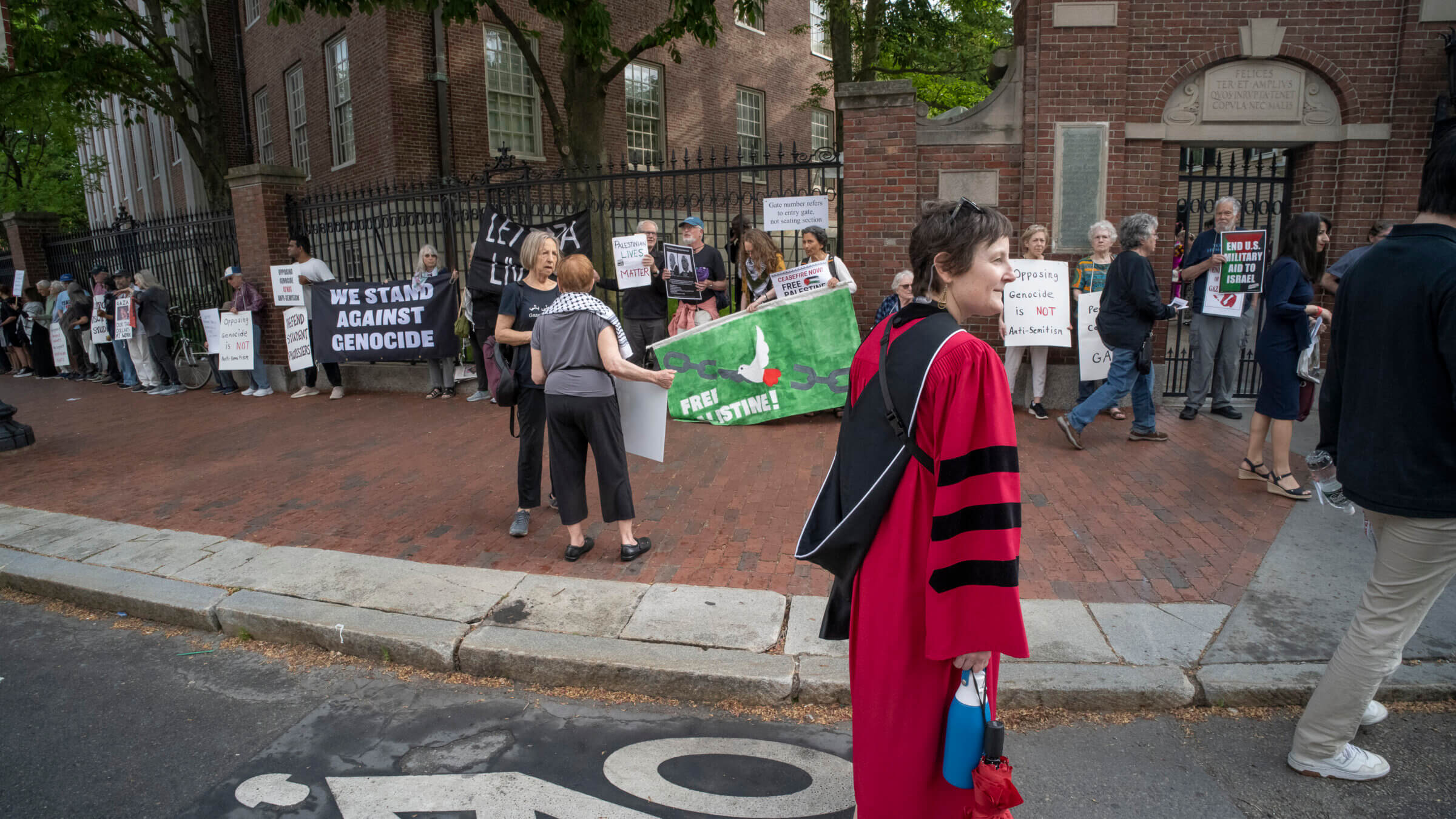
Pro-Palestinian demonstrators protest outside Harvard Yard during the university’s 2024 graduation on Thursday Photo by Rick Friedman / AFP via Getty Images
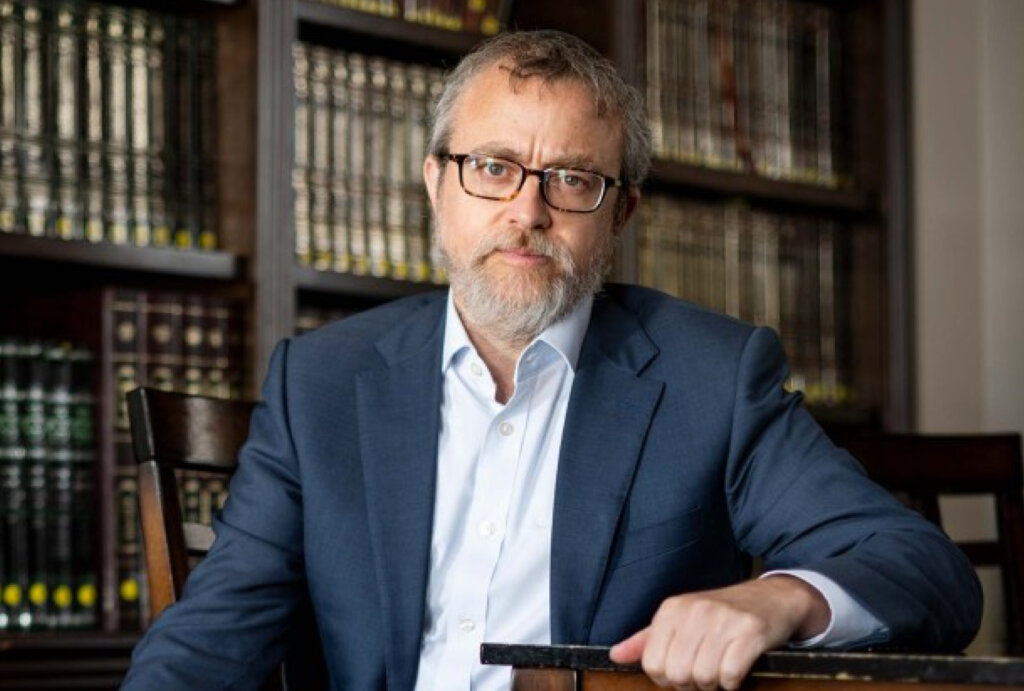
From his seat on the stage at Harvard’s commencement, Rabbi Hirschy Zarchi, who leads the university’s Chabad, watched hundreds of pro-Palestinian protesters walk out of the Thursday ceremony. He heard speakers honor students who had, in his view, hijacked the campus this past school year as they slandered Israel and Jews. It was a “really vile program,” he said of the graduation.
Then, featured speaker Maria Ressa, the Nobel Prize-winning Filipino American journalist, took the podium. She talked about protecting free expression and the perils of disinformation — and the price she paid for accepting Harvard’s invitation.
“I was attacked online and called antisemitic,” she said. “By power and money. Because they want power and money. While the other side was already attacking me because I had been onstage with Hillary Clinton. Hard to win, right?”
The part about how “they” want power and money sounded like an antisemtic slur to Zarchi. When she referred to “they,” was she referring to Jews?
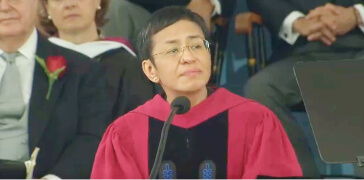
Zarchi approached Ressa during the last minutes of commencement. He wanted her to reclaim the microphone and clarify her words for the nearly 30,000 people in Harvard Yard. Many noticed the rabbi whispering to her, and soon after saw him walk off the stage.
Ressa did not immediately respond to an emailed request for comment.
I asked Zarchi what he was thinking during the ceremony, why he chose to act as he did, and for his advice for Jewish high school students considering applying to Harvard. This interview has been edited for length and clarity.
What did you think when you heard Maria Ressa talk about being called antisemitic “by power and money?”
I was questioning myself. That’s what she said? Then she said how much loved the speeches of the students — who called for a ceasefire in Gaza, said not a word about the hostages and glorified the protesters and the encampments. And she said she “loved” those speeches? These were hateful protests that called for the destruction of Israel, for the murder of Jews with chants of “globalize the intifada.”
It was bad enough to have the disruption within the audience, the day of celebration violated. But to have a program validate that and then to have her introduce her own antisemitic rhetoric. It was a sad day.
After Ressa had finished speaking, and during the closing prayer, you made your way over to her. What did you want?
I saw that this was a very big problem. Some could argue that there was some kind of ambiguity with her words.
So my idea was to ask her to consider taking a moment to clarify them. Maybe there’s a way we can fix this to some degree — for the students, for the audience and for the world.
The ceremony is still going on. She was right next to the microphone. How amazing would it be if she went off script and offered some explanation to correct things? So not to miss the opportunity, I walked over and suggested that to her.
And how did she respond?
She definitely heard me because she was responding and trying to excuse it and didn’t see the problem. Then someone nearby said “this is not the time.” And I thought if she’s not going to take advantage of the moment, there’s nothing left for me to do here, because I’m not looking to disrupt. So I just walked off the stage and I was done.
Then where did you go?
I headed toward Widener Library. All the Harvard chaplains were invited to a luncheon hosted by the Harvard Corporation.
What kind of reception did you get there?
They had kosher food for us, which was nice. But I was disappointed to hear the celebration — a toast celebrating the fact that we had an in-person commencement. I thought that was both tone deaf and reflected poor aspirations — that we’re not like Columbia which had to cancel its commencement. Some would argue it would have been better if we had.
Would you advise Jewish high school students to enroll in Harvard?
If they’re asking where to go, I’d say go to yeshiva. If you’re coming to a secular college, by all means come to Harvard. In spite of everything.
On the one hand, there’s been such a profound breakdown of the academy, hateful protesters, the faculty, some of which are encouraging this. But at the same time we have an amazing, thriving, joyous, growing, inclusive Jewish community. If you want to lead in the world, it’s not a bad place to learn about its challenges. If you want to shape a better tomorrow, we’d love to have you join our community.


